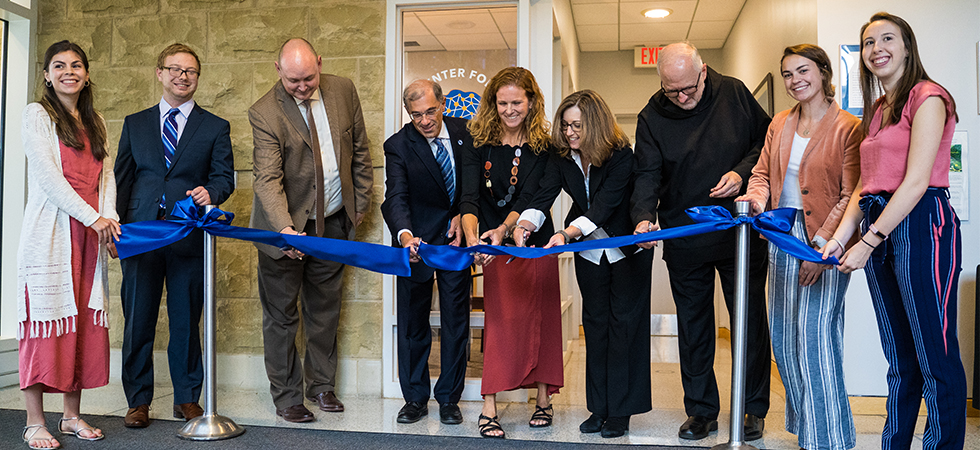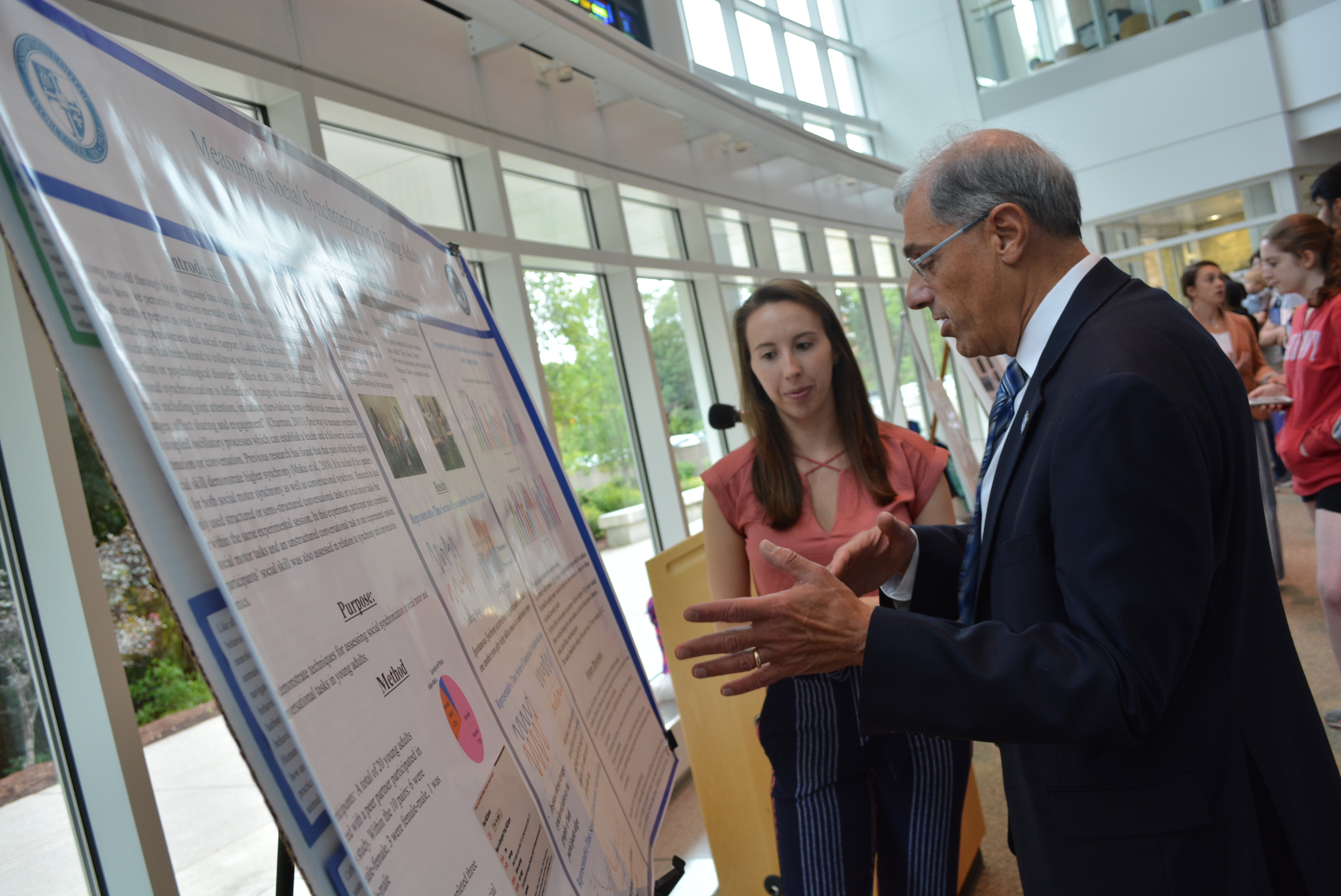Assumption Celebrates New Center for Neuroscience

Assumption celebrated one of the institution’s newest interdisciplinary programs with the dedication of a new physical space for the Center for Neuroscience. The ribbon cutting and Summer Research Symposium served as the first official events of the newly created College of the Liberal Arts and Sciences at Assumption.
“The Assumption program and this Center, true to an institution committed to the liberal arts, with a concern for and a focus on the human person, offers an authentic interdisciplinary approach, from the areas of biology, or chemistry, psychology and philosophy,” said Francesco C. Cesareo, Ph.D., president of Assumption. “In studying neuroscience here, we approach this complex field from different perspectives, the biological, psychological, and the philosophical … An interdisciplinary approach is critical to making advances into understanding how and why we learn, the feeling we experience, or even how biological abnormalities can alter one’s life and way of thinking … This Center is yet another distinct feature of a unique education offered to students at Assumption.”

The Center, located in the atrium of the Testa Science Center, is a place for students—neuroscience majors and non-majors—to share a curiosity for the discipline. The Center for Neuroscience offers an opportunity for students to explore brain-centric research. The Center aims to increase student research opportunities; enable students to present their research at national conferences; offer neuroscience-focused career-building events on campus; host a neuroscience-centric lecture series featuring nationally recognized neuroscientists; and engage in community service and outreach.
“I am truly excited about the opportunity that the Center for Neuroscience provides our students and indeed our entire community,” said Professor Michele Lemons, Ph.D., director of the Center. “The Center is emboldened by the mission of the institution, and it offers avenues by which we can explore neuroscience beyond the restrictions of a traditional classroom.”
Prof. Lemons shared that student-faculty research is extremely valuable and because of it, is a cornerstone of the Center; students are offered paid summer research internships. William Armstrong ’20 and Emily Norman ’20, both neuroscience majors, have benefitted from this and worked with Prof. Lemons over the last two summers.
“Through this research experience, I realized that I want to further my research experience after I graduate and pursue my Ph.D. in neuroscience,” said Norman. “The Center has enabled me to discover what I want to do with my life.”
Armstrong said his experience with the Center didn’t stop in the classroom; His godmother suffers from multiple sclerosis, a neurodegenerative disorder. He said that “in an affirmation of our school’s catholic identity and emphasizing the importance of service,” Armstrong and 30 of his Assumption classmates participated in Walk MS Worcester last spring, raising awareness and $2,600 for research. “This is just one of the many, many ways in which the Center has been able to bring neuroscience out of the classroom and into the community,” he said.
Prof. Lemons shared that the news of the Center caught the attention of the Central Massachusetts Chapter of the Society for Neuroscience, who has selected Assumption as its next meeting site. At this meeting in October, five neuroscience students—including Norman and Armstrong—will present their research to representatives from colleges across Connecticut, Massachusetts, and New Hampshire.
After the ribbon cutting, Norman, Armstrong, and their classmates participated in the Summer Research Symposium, which enabled guests the opportunity to speak with the students about their summer research and view their posters and displays.
“These students spent their summer immersed in the scholarly expertise of their faculty mentor, working side by side with the mentor advancing knowledge in the field,” said Professor Paula Fitzpatrick, Ph.D., dean of the College of Liberal Arts and Sciences. “These projects highlight the role of our faculty as both teachers and scholars and allow students to make meaningful contributions to the disciplines and share their findings with the community.”
For more information, visit the Center for Neuroscience.
